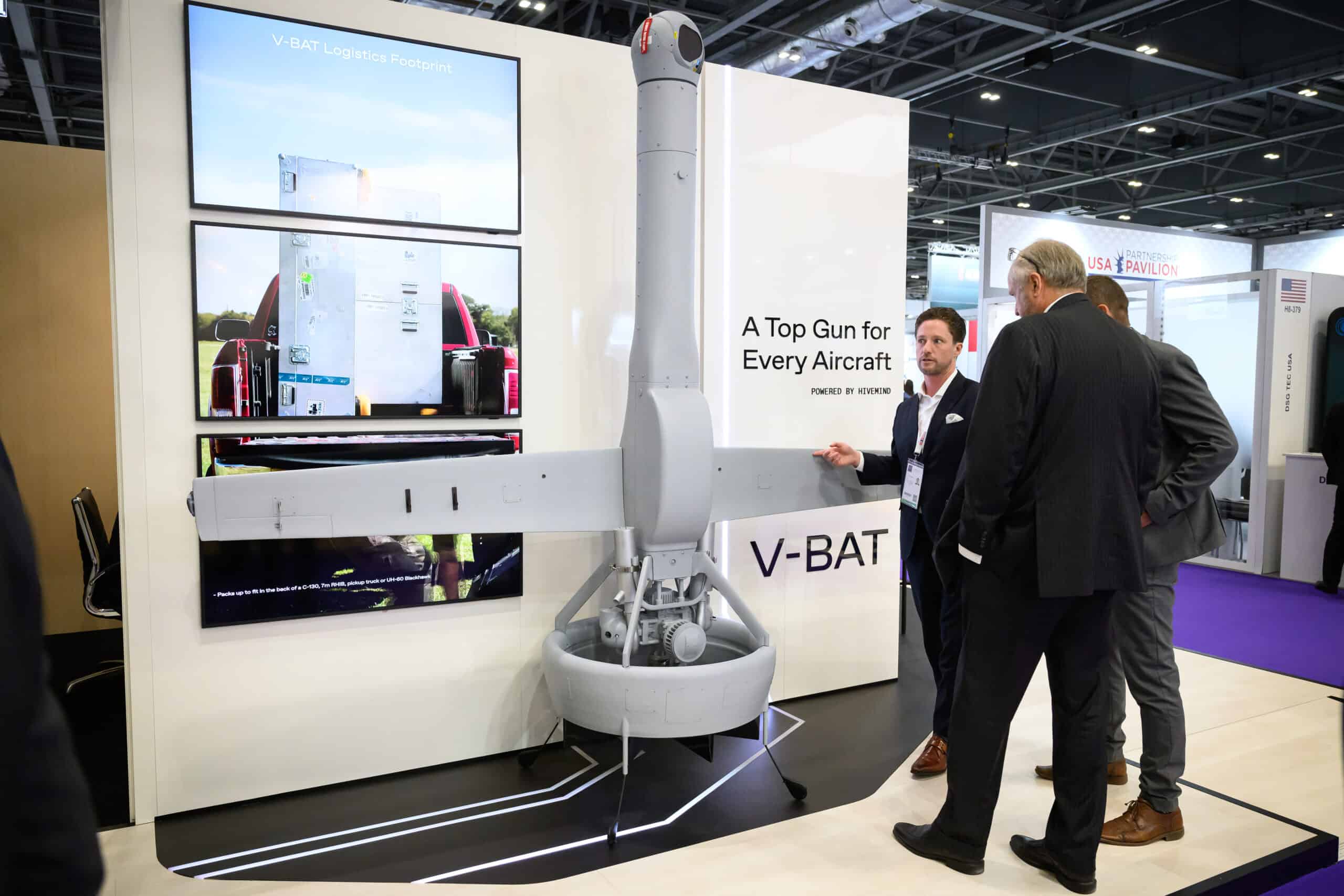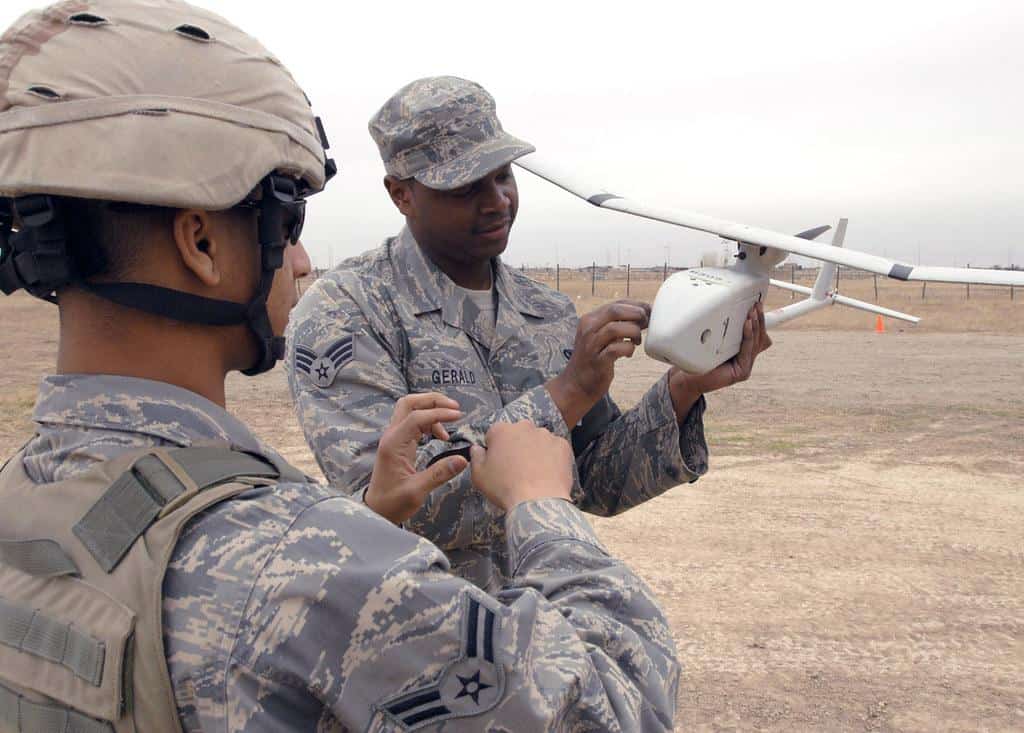
Donald Trump’s re-election in the 2024 presidential election means he’ll be the first president to serve non-consecutive terms since Grover Cleveland. A second Trump term could see a substantial shift in defense policy and procurement. While it remains to be seen what, if any, cuts will be made to defense spending, spending priorities will likely shift. The defense startups that emerged under the Biden administration could boom under Trump. This article will examine some of the new contractors that could gain the most under a Trump presidency.
Why This Matters

Trump’s victory owed a great deal to the backing he received from some sections of the tech industry. Trump’s running-mate has strong ties to Peter Thiel, one of the most influential conservative-minded investors in Silicon Valley. Trump-aligned figures in the industry saw their companies’ stock prices surge in the wake of Trump’s victory, and leading figures in the tech industry will form a major part of the new administration.
Anduril

Founded: 2017
Headquarters: Costa Mesa, CA
Anduril has shown that a young startup can beat more established names to lucrative defense contracts. The company’s main areas of interest are software, border and base security, and unmanned air and underwater vehicles. All of Anduril’s products use Lattice, its AI-powered operating system. Lattice synthesizes information from sensors and data sources to allow commanders on the ground to make informed decisions. As the complexity of modern warfare moves beyond human comprehension, Anduril seeks to lift the fog of war. Anduril also manufactures sentry towers for border security, which is certain to be a major focus of the next administration. Accordingly, founder Palmer Luckey views Trump’s victory as a lucky break for the tech industry as a whole.
Epirus

Founded: 2018
Headquarters: Torrance, CA
Traditional air defense systems are not well-equipped to deal with swarms of cheap kamikaze drones. Adversaries such as Iran have developed drones that cost just $20,000 apiece. Shahed drones were used in the attacks on Israel in April 2024 and have been used by Russia in Ukraine. Epirus has developed a weapon system to counter swarms of drones. Leonidas uses a high-power microwave (HPM) system to fry drone control systems. It can be programmed to enforce a no-fly zone by differentiating between friendly and hostile drones. In 2023, the company secured a $66 million contract with the US Army to develop Leonidas. The tech showed some promise in tests run by the US Army in August 2024. With the ongoing crisis over attacks on shipping the Red Sea by the Houthis, there will be significant interest in Leonidas in the coming year.
Firestorm Labs

Founded: 2022
Headquarters: San Diego, CA
Firestorm Labs specializes in small combat drones that can be rapidly and extremely cheaply manufactured. The company uses 3D printing to solve the problem of rapid weapon production. The Tempest 50 weighs between 21 and 55 lbs, depending on loadout. The innovative manufacturing process can produce the airframe in just nine hours, and it can be fully assembled and operational in 36 hours. In December 2024, the company won a $100 million contract with the Department of Defense. The deal runs until 2031 to develop small UAVs, provide support services, and conduct further research and development.
Saronic

Founded: 2022
Headquarters: Austin, TX
Saronic is a startup that specializes in naval drones. The war in Ukraine shows just how devastating unmanned surface vessels (USVs) can be. Without a navy of its own, Ukraine has destroyed or damaged much of Russia’s Black Sea Fleet. Accordingly, there is increased interest in developing USVs.
Modern warships are not only incredibly expensive but also take a long time to manufacture. This is a particularly acute problem for the US Navy, which has fewer ships than China and lacks the industrial capacity to close that gap. Smaller naval drones can be built quickly and at low cost. Saronic’s naval drones could help enhance the US Navy’s qualitative edge by adding much-needed quantity. In its latest round of funding, Saronic raised $175 million.
Shield AI

Founded: 2015
Headquarters: San Diego, CA
In the words of co-founder Brandon Tseng, “China’s military is Netflix; the U.S. military is Blockbuster.” The company seeks to redress this with Hivemind, its AI software. Hivemind is an AI pilot that can autonomously operate aircraft on missions ranging from room clearing with drones to dogfighting with F-16s. Secretary of the Air Force Frank Kendall, a strong proponent for using AI, flew in an AI-powered F-16 in May 2024. Kendall’s replacement under Trump is not yet clear, but it is likely his replacement will share his enthusiasm for the possibilities autonomous aircraft will offer.
Teal Drones

Founded: 2014
Headquarters: Salt Lake City, UT
A subsidiary of Red Cat Holdings, Teal Drones is a Utah-based firm that produces reconnaissance drones for the US Army. In November 2024, after an extensive evaluation process, Teal Drones won a major contract ahead of Skydio. The Black Widow is a short-range drone that weighs just 3.5 lbs. In December 2024, Teal’s parent company announced a strategic partnership with Palantir, Peter Thiel’s software company.
The Takeaway

The incoming administration could see a shift in defense spending priorities, with defense startups well-placed to prosper. The companies featured here are not an exhaustive list but a collection of young firms that could take off in the next four years. Anduril showed that a newcomer could unseat the established players in the defense sector, while companies like Epirus, Firestorm, and Saronic stand to gain greatly from the increased focus on autonomous systems and countermeasures.
Take Charge of Your Retirement In Just A Few Minutes (Sponsor)
Retirement planning doesn’t have to feel overwhelming. The key is finding expert guidance—and SmartAsset’s made it easier than ever for you to connect with a vetted financial advisor.
Here’s how it works:
- Answer a Few Simple Questions. Tell us a bit about your goals and preferences—it only takes a few minutes!
- Get Matched with Vetted Advisors Our smart tool matches you with up to three pre-screened, vetted advisors who serve your area and are held to a fiduciary standard to act in your best interests. Click here to begin
- Choose Your Fit Review their profiles, schedule an introductory call (or meet in person), and select the advisor who feel is right for you.
Why wait? Start building the retirement you’ve always dreamed of. Click here to get started today!
Thank you for reading! Have some feedback for us?
Contact the 24/7 Wall St. editorial team.
